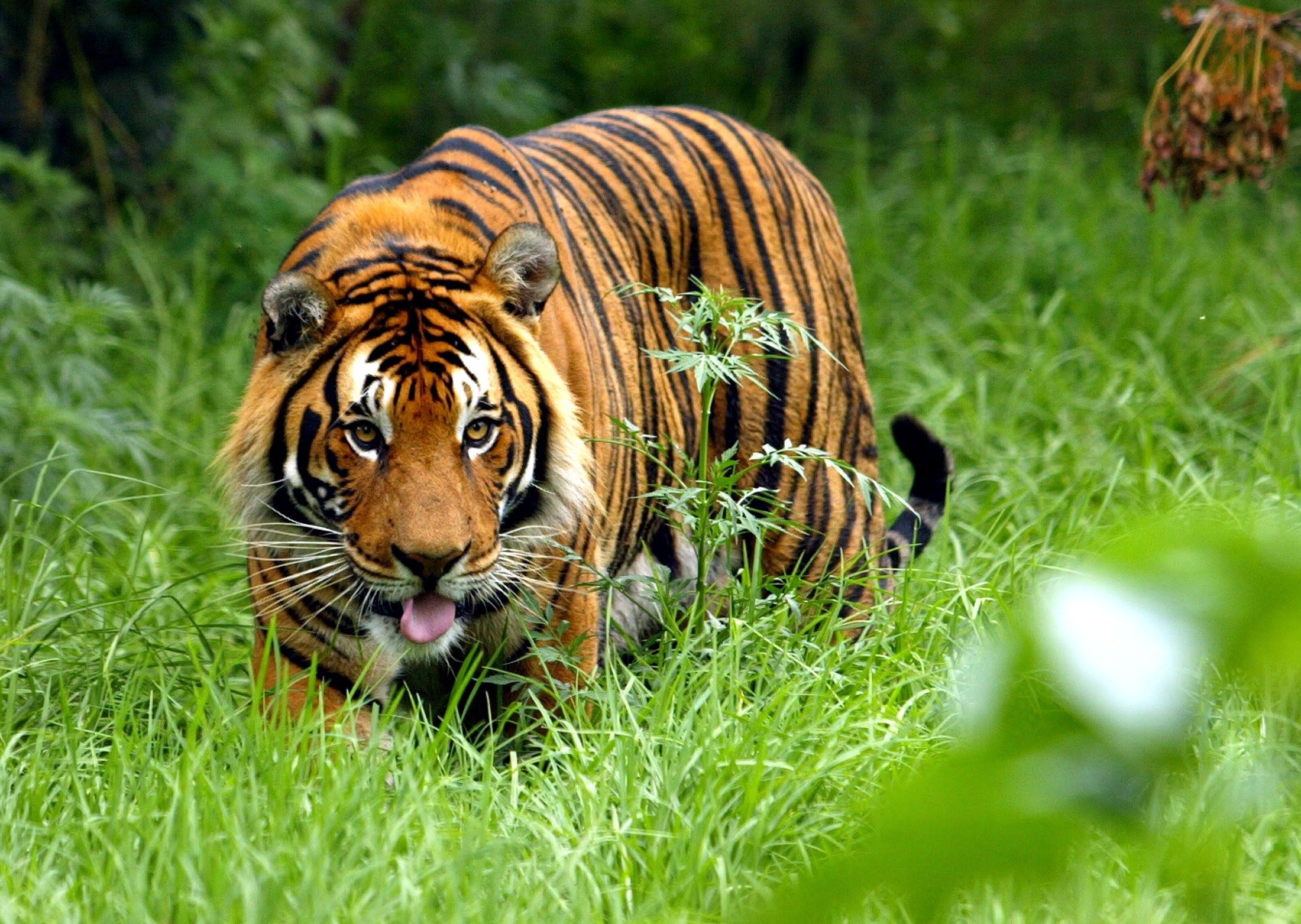September 11, 2018
Over the past two years, a wild tigress has stalked and killed more than a dozen people near a village in central India. The New York Times has a superb story about it, which you can (and should) read here: it’s got gruesome maulings, orphaned cubs, altruistic suicide-seekers, and heavily armed elephant rides. But it’s also a subtle portrait of many of the political and social challenges that India faces today. Here’s a brief look behind some of the story’s best lines.
“India’s Hindu nationalist governing party, the B.J.P., has cracked down... on the slaughter of cows, an animal Hindus revere. This has created enormous herds of mangy, unproductive, unwanted cattle that herders don’t dare to kill, either because of specific cow protection laws that vary state by state or because they are terrified of being lynched by Hindu extremists.”The BJP, led by current Prime Minister Narendra Modi, swept to power in 2014 on an assertively Hindu nationalist platform. As it happens, the powerful traditionalist organizations that support the BJP demand better protection of cows – which enjoy nearly god-like status among devout Hindus. As a result, the BJP – which controls more than half of India’s states in additional to the national government – has sought to expand cow protection laws significantly over the past several years. At the same time, Hindu “cow vigilantes,” some of which reportedly have links to the BJP, have killed dozens of (mostly Muslim) cattle herders, and extorted many more.
The result is: lots more cows around, which milk farmers can’t support but are scared to kill. From the tigers’ perspective this is a massive enticement to come out of the forest for a bite – and into closer contact with humans. The problem reflects the larger story of escalating sectarian tensions as the world’s largest democracy heads for national elections in 2019. Modi wants to keep the traditionalists on side, and the cow issue is a winner with that base.
“Many tigers are now running out of space… all across India, islands of forest are shrinking”
This is also a story about India’s growing urbanization and dwindling natural space. While conservation efforts have caused the tiger population to rebound over the past decade, their natural habitats – several dozen tiger reserves and related forest corridors – have either failed to grow apace or have actually been reduced by massive new infrastructure and construction projects. Since coming to power, the BJP has sought to loosen some of India’s extensive environmental regulations in order to boost investment and growth, while also giving the green light to several infrastructure projects that directly threaten tiger habitats. The government says economic growth is the priority, as you might expect in a country that needs to create a million new jobs every month just to keep pace with a swelling population.
“‘If I die, will you give my family the money?’”
The government has offered up to $14,000 to the families of the victims of tiger attacks. For perspective on just what that means, that’s about seven times per-capita GDP. Over 20 percent of Indians still live on less than $1.90 a day. Rural wages have actually declined over the last two years. So while India has made extraordinary strides in poverty reduction in recent decades, with more than 270 million poor (most of them in rural areas), there is still a reason that the elderly man quoted above was found milling about a tiger bait station, hoping to get mauled.
More For You
- YouTube
Some of the regime’s best moments — did we miss any? #PUPPETREGIME
Most Popular
Mastercard Economic Institute's Outlook 2026 explores the forces redefining global business. Tariffs, technology, and transformation define an adaptive economy for the year ahead. Expect moderate growth amid easing inflation, evolving fiscal policies, and rapid AI adoption, driving productivity. Digital transformation for SMEs and shifts in trade and consumer behavior will shape strategies worldwide. Stay ahead with insights to help navigate complexity and seize emerging opportunities. Learn more here.
- YouTube
Gotta maximize sleigh-holder value. #PUPPETREGIME
© 2025 GZERO Media. All Rights Reserved | A Eurasia Group media company.
